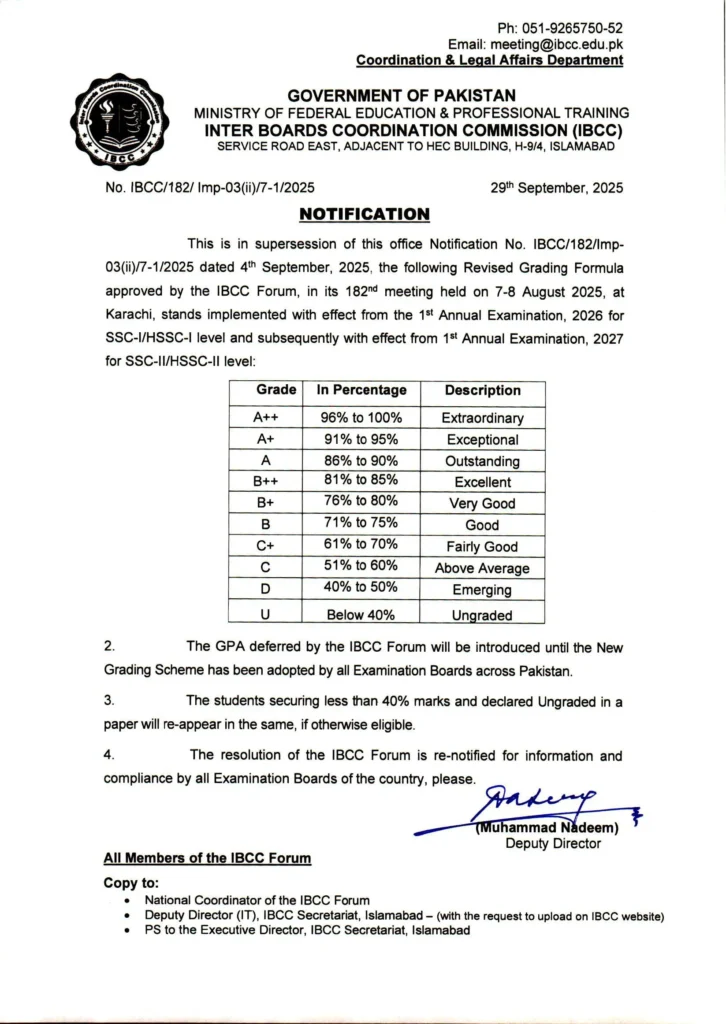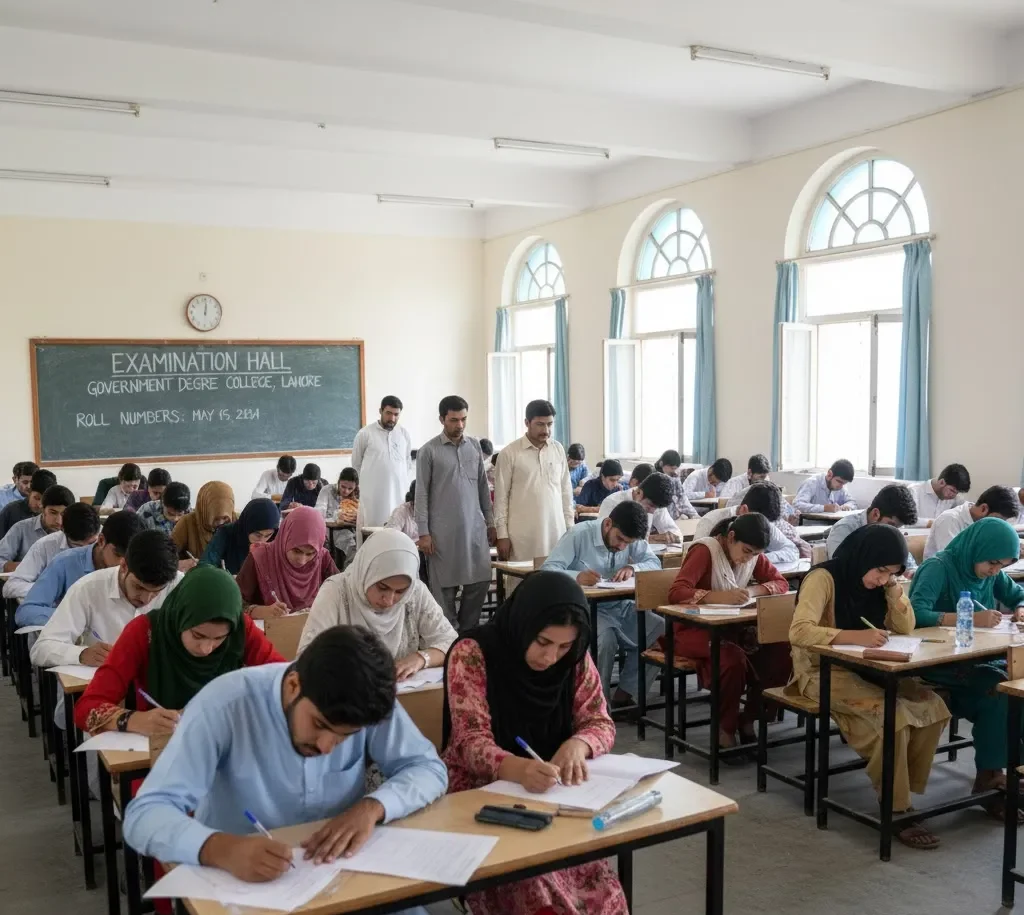1. A Major Shift: Why Pakistan Is Changing Its Grading Policy
The new grading system Pakistan 2026 marks a significant departure from the traditional marks-based evaluation. The Inter Board Coordination Commission (IBCC), the official forum of all education boards across Pakistan, has announced in a formal notification that a revised grading structure will be introduced in phases starting in 2026.
Importantly, this updated model excludes the GPA/CGPA component that had been part of earlier drafts. During the Karachi meeting of all board heads, many universities voiced hesitation in adopting GPA-based admissions immediately, so the boards agreed to delay GPA’s inclusion. The Express Tribune
By deferring GPA and focusing first on letter-grade classification, the authorities aim for a smoother transition. As IBCC’s Executive Director, Dr. Ghulam Ali Mallah, noted: “Universities are not yet ready to offer admissions based on the GPA system … so we begin without it.”
This move responds to concerns about harmonisation, fairness, and readiness at higher education institutions.
2. Understanding the New 10-Tier Grading Scale
The heart of the new grading system Pakistan 2026 lies in a more granular letter-grade structure, inspired by international models such as Cambridge assessments. Previously, marks from 80–100 % were lumped into a single “A1” grade. Now, that span will be subdivided into four elite categories: A++, A+, A, and B++.
Here’s how the grading breakdown will work:
| Marks (%) | Letter Grade | Descriptor / Category |
|---|---|---|
| 96 – 100 | A++ | Extraordinary |
| 91 – 95 | A+ | Exceptional |
| 86 – 90 | A | Outstanding |
| 81 – 85 | B++ | Excellent |
| 76 – 80 | B+ | Very Good |
| 71 – 75 | B | Good |
| 61 – 70 | C+ | Fairly Good |
| 51 – 60 | C | Above Average |
| 40 – 50 | D | Emerging |
| Below 40 | U (Ungraded) | Unsatisfactory / Retake Needed |
Students who receive a “U (Ungraded)” can make a claim in those subjects acceptable to other academic considerations.
Also, passing a subject will move up from 33% to 40% under this newly conceived system.
The aim is to provide more differentiating power at the top of the distribution and to minimize grade inflation.

3. Phased Development and What to Expect
To phase the new grading system Pakistan 2026 in is based on a true phased implementation process:
2026, Grades 9 (SSC-I) and 11 (HSSC-I) are directed to phase in the new system.
The Federal Board (FBISE) has also timed its schedule in this manner: the new grading system will be operational in 2026 matriculation exams and will transition to the new grading system in 2027 for intermediate (FA/FSc) exams.
To ease the workload at universities who may not be ready to assimilate GPA into their admission process, GPA/CGPA is also on hold. And this decision is justified. Again, institutions and systems’ infrastructure, rules, policies, will evolve to use GPA in the near future.
Critics and educationists are weighing in on this transition: while the broad-scale response has been favourable in terms of its transparency and differentiation, the other perspective is that raising the passing mark and phasing out GPA/CGPA can be challenging or perhaps create ambiguity in the immediate sense. But on the whole, a consensus emerged that Pakistan needed a new and globally comparable grading system.



